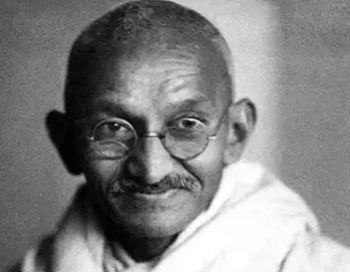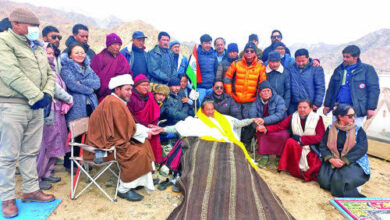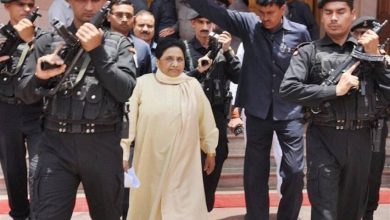Swarajya : Gandhi’s Idea of Self-Rule

“The word Swarajya is a sacred word; (it is) a Vedic word, meaning self-rule and self-restraint, and not freedom (generally Swatantrata in the Indian terms) from all restraint, which ‘independence’ often means.” –Mahatma Gandhi
The above statement of Mahatma Gandhi about Swarajya is not only important from its meaning and purpose viewpoint, but also worth considering especially keeping the basic spirit of the word Swarajya itself in the centre.
The word Swarajya is generally taken in terms of self-rule, i.e., a rule by indigenous people –a Government free from foreign domination (as has been for hundreds of years in case of India as it remained slave in the hands of Muslim invaders –tyrants, European Colonialists and eventually the English) and in which the sole right to govern remains only with countrymen. Further, people enjoy freedom in full in their own country. However, the Mahatma does not agree to this in context of Swarajya as is clear from his above short statement. He does not consider it to be in slight accordance with the basic spirit of the word Swarajya.
As is evident from his own above-mentioned statement, Mahatma Gandhi acknowledged Swarajya as a sacred word. He accepted it to be a part of the Vedic philosophy. It is because the first part of the word Swarajya, ‘Swa’ (‘Own’ and ‘Self’ etc. –even in the form of a prefix) essentially relates to Soul –realization of Soul, which is the reflection of Supreme Truth –Paramasatya as its source. It is, therefore, the most sacred word.
The word ‘Swa’ is well explained in the Shvetaashvataropanishad. It depicts that through one’s ‘Own’ (‘My’, i.e., of the superior self) self-realization (in place of longing for physical pleasure) the purpose (of life) is to step forward continuously to achieve the ultimate goal of the Soul. One, in compliance with the eternal and ever flowing universal rule of All-pervading and Omnipresent Supreme Power, Who is the only source of everything in the universe –movable-immovable, realizing the everlasting truth of cosmic unity through his own ‘Self’ –‘Atmatattva’ should make the welfare of one and all his sole purpose of life on the basis of Karmas –deeds, which is the divine duty of a human being. It appears in the Shvetaashvataropanishad, “EtajjneyamNityamevaatmasamsthamNaatah Param VeditavyamHi Kinchit/ BhoktaaBhogyamPreritaaramCha MatvaaSarvamProktamTrividhamBrahmametat//”
Swarajya of Mahatma Gandhi’s imagination is indeed in consonance with the meaning –explanation of this ‘Swa’. The words self-rule and self-restraint appeared in the short statement of the Mahatma, quoted at the commencement of discussion in hand, could be seen and assessed in this very perspective. These words should be comprehended and analyzed according to the basic spirit of the Upanishadic message to man to do for the welfare of the whole of humanity.
‘Atmatattva’ –Soul itself is the basic source of duty-oriented morality. The ‘Atmatattva’ –Soul or ‘Self’ is the promulgator and guide of purity in life, deep-seated humanity and all welfaristic civilization. Therefore, bringing Swarajya (which is to be ruled by ‘Atmatattva’ –Soul or ‘Self’) within the ambit of purity, morality and civilization, the Mahatma wrote in Young India on January 23, 1930, “If Swarajya was not meant to civilize us, and to purify and stabilize our civilization, it would be nothing worth. The very essence of our civilization is that we give a paramount place to morality in all our affairs, public or private.”
‘Atmatattva’ is the reflection of the Supreme Truth –Paramasatya. Paramasatya is the basis of universality –uniformity of all life. Human equality remains the supreme in universality. Mahatma Gandhi, therefore, placed equal welfare of each and every one at the top of Swarajya of his imagination. He wrote in Young India on March 26, 1931, “Swarajya is to be for all –for the welfare of everyone.”
Hence, ‘Atmatattva’-oriented Swarajya is indeed a sacred and all-welfaristic. Swarajya is not merely a power –the Government free from foreign dominion or slavery –exploitation of own countrymen, nor is it related to the Government run by natives. The basic spirit of Swarajya is, can be repeated time and again, the most sacred and man-oriented –dedicated to all-round development of everyone.
Maximum possible freedom from control including the control of the State and bringing dependency over the Government to the minimum, achieving self-sufficiency on the basis of available resources and on the strength of indigenous values and through the large-scaled co-operation of compatriots, the welfare of one and all is the sole objective of Swarajya. For the certainty of large-scaled co-operation necessary for the maximum welfare of everyone, mass public awakening, continuous development of the spirit of responsibility towards the society, the nation and the humanity as a whole and endeavours accordingly, individually and collectively, is the foremost implication of Swarajya of Gandhiji’s imagination also its prime expectation from the compatriots.
People’s consent is the basis of Swarajya. Participation of the largest number of citizens, female and male, and electing right and responsible representatives is the way of reflecting public consent. Further, if the elected representatives fail to discharge their duties towards the people, the society and the nation or they act against the will of the people, the same public consent transforms into people’s power to bring a revolutionary change through the non-violent way, which is, in fact, the most constructive manner of bringing a peaceful end to a chaotic state. Swarajya of Mahatma Gandhi’s imagination is, undoubtedly, a constructive and all-welfaristic idea dedicated to the rise of every citizen without any kind of discrimination based on caste-class, colour, gender, religious community or economic disparity. It is committed to establish an ideal society –a welfare state highly surcharged with the spirit of duty-bound morality. In Swarajya of Gandhiji’s imagination, each and every individual, woman or man, is entitled to avail opportunities for her/his all-round development to contribute to the large scaled wellbeing of everyone while staying within the ambit of high human values. Making endeavours accordingly are desirable; it is the foremost call of Swarajya.
*A Padma Shri and Sardar Patel National Awardee Indologist Dr. Ravindra Kumar is a Former Vice Chancellor of CCS University, Meerut; he is also the Editor-in-Chief of Global Peace International Journal.





